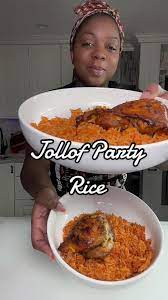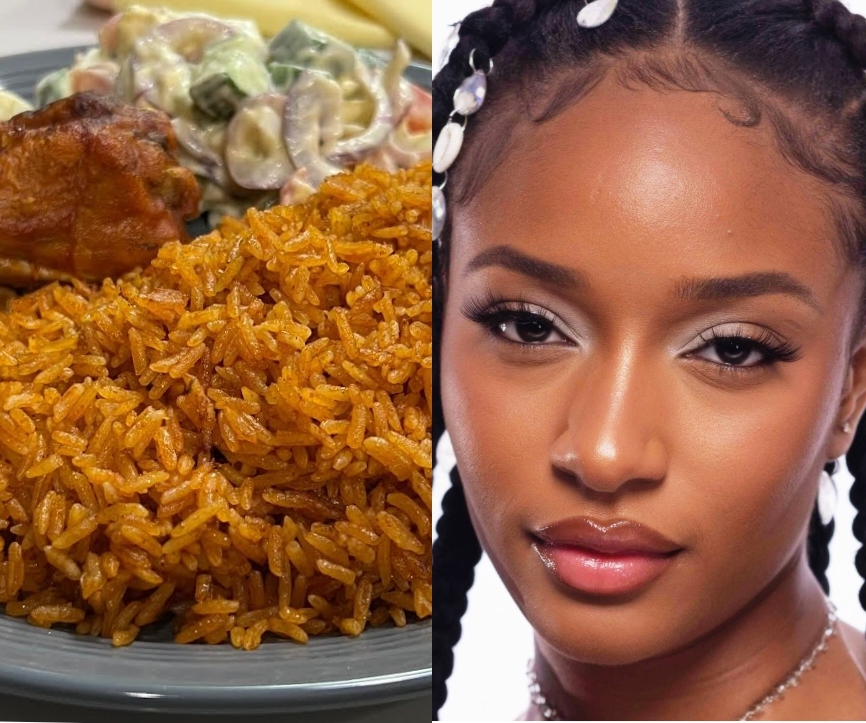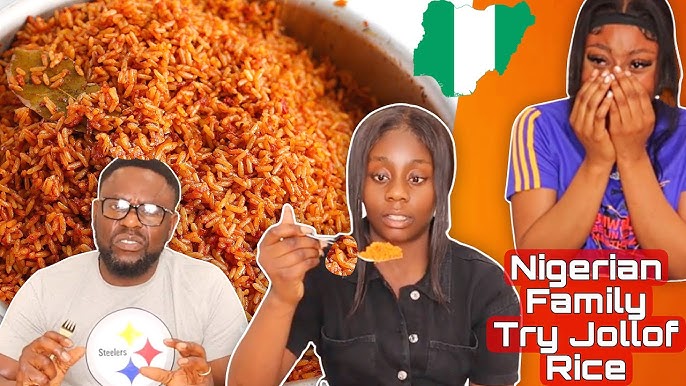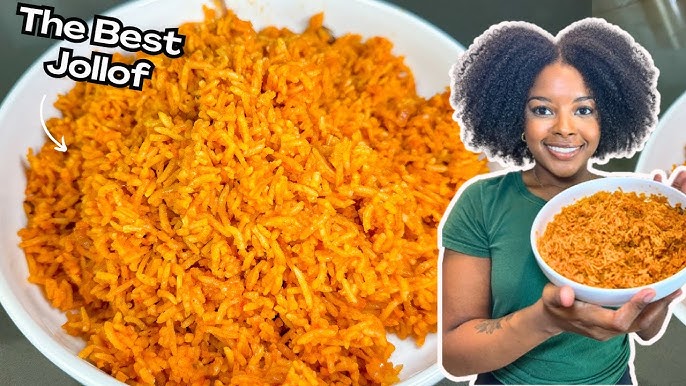This Tweet About Nigerian Jollof Went Viral – See Reactions
Food has always been a universal language. It connects people across cultures, evokes emotion, and often sparks debate — especially when it comes to national dishes. But few foods are as passionately defended as Jollof rice, and nothing stirs the pot quite like someone daring to claim which country makes the best version. Recently, a tweet about Nigerian Jollof went viral, setting off a digital firestorm of culinary pride, hilarious memes, and spirited reactions across the internet.
Let’s dive into what happened, what was said, and why Nigerian Jollof continues to dominate the global conversation on West African cuisine.
The Tweet That Started It All
It all began with a simple, bold tweet:
“Let’s be real, Nigerian Jollof is the only Jollof worth talking about. Everything else is just red rice.”
The tweet, posted by a Nigerian food blogger with a sizable following, immediately struck a nerve — not just among Nigerians proud of their culinary heritage, but also among Ghanaians, Senegalese, Sierra Leoneans, and other West Africans who hold their own versions of Jollof close to heart.
Within 24 hours, the post had racked up:
- Over 150,000 likes
- More than 50,000 retweets
- Thousands of comments
- Dozens of dueling memes
What followed was a viral thread of reactions, cultural defenses, food photos, and of course — the age-old Jollof war reignited.

What Makes Nigerian Jollof So Special?
For those unfamiliar, Jollof rice is a beloved West African dish made with rice cooked in a rich tomato-based sauce, typically seasoned with garlic, onions, bell peppers, chili, curry, thyme, and a mix of traditional spices. It’s often served with fried plantains, grilled chicken, beef, or fish.
Nigerian Jollof is known for its smoky flavor, spicy kick, and deep red color. Cooked in party-sized pots at weddings, birthdays, and family gatherings, it has become a cultural icon, especially the legendary “party Jollof” — cooked over firewood for an unmistakable aroma and taste.
Viral Reactions – The Internet Responds
The tweet triggered a wide range of reactions from around the world. Here’s a look at the most common types of responses:
1. The Proud Nigerians

Many Nigerians flooded the comments in agreement, sharing photos of their own Jollof creations with captions like:
- “Tell them again!”
- “There’s Jollof… then there’s Nigerian Jollof.”
- “Ghanaian rice tastes like it was boiled in apology.”
Their photos showed beautifully plated rice with grilled turkey, moi moi (bean cake), and perfectly ripe plantains — a culinary flex, no doubt.
2. The Ghanaian Clapback
Ghanaians weren’t having it. Many responded with their own tweets and memes claiming superiority, including:
- “Our Jollof has soul, not just heat.”
- “Keep your burnt rice. Ghana Jollof is made with love.”
Some posted side-by-side comparisons of Nigerian vs. Ghanaian Jollof, often sparking debates over texture, spice levels, and cooking techniques.

3. The Senegalese Shade
Interestingly, Senegalese users stepped in to remind everyone that Jollof originated in Senegal, from the Wolof people (hence “Jollof”). They dropped history lessons like:
“Before you argue, learn where it started. The mother of Jollof lives in Senegal.”
They brought attention to Thieboudienne, the traditional dish believed to be the root of all Jollof — a more seafood-centric version with vegetables and deep flavors.
4. The Humorous Takes
The funniest responses came from users who chose humor over war:
- “This Jollof debate is West Africa’s version of Marvel vs. DC.”
- “Just give me both. Nigerian Jollof on Monday, Ghanaian on Friday.”
- “Let the UN host a Jollof cook-off already.”
Some even made parody videos, acting as diplomats arguing Jollof superiority at an imaginary United Nations assembly.
ALSO READ : Inside Liquorose’s ₦50 Million Closet
The Cultural Significance Behind the Rice
Why does a simple rice dish spark so much debate? Because Jollof rice is more than food — it’s identity, pride, memory, and emotion all served on one plate. Across West Africa and the diaspora, Jollof is often at the center of family gatherings, holiday feasts, and celebrations.
For many, learning to cook Jollof is a rite of passage. Everyone remembers their mother’s or grandmother’s recipe. Everyone has an opinion about what’s “authentic.” And every country wants the bragging rights.
In the global food scene, Jollof rice has become one of the most recognized African dishes — appearing on menus from New York to London to Dubai. Nigerian restaurants, in particular, have led the way in popularizing the dish abroad.

Influencers, Chefs, and Celebrities Weigh In
As the tweet continued to trend, even public figures began jumping into the mix.
- Burna Boy liked a tweet praising Nigerian Jollof, adding fuel to the fire.
- Chef Hilda Baci, the Guinness World Record holder for longest cooking marathon, posted a tutorial on making Nigerian Jollof — with subtle shade in the caption: “For those who don’t know what real Jollof tastes like 😉.”
- Michael Dapaah (Big Shaq), the UK-based Ghanaian comedian, posted a hilarious video pretending to taste both versions blindfolded and “accidentally” choosing Ghana’s.
A Culinary War with No End in Sight
This isn’t the first time Jollof has gone viral — and it won’t be the last. In 2016, Facebook founder Mark Zuckerberg visited Nigeria and said, “I had Jollof rice, and it was delicious,” causing another spike in national culinary pride.
Since then, every tweet, video, or comment that even dares to compare Jollof varieties tends to trend. The debate has become a ritual — part-serious, part-satirical — and a fun reminder of the richness of African food culture.
Where Do You Stand?
With the tweet still circulating and new videos and memes dropping daily, one thing is clear: Jollof is here to stay — and the debate is far from over.
So, where do you stand in the great Jollof war?
- Nigerian Jollof: Bold, spicy, smoky, unforgettable?
- Ghanaian Jollof: Subtle, fragrant, tomato-rich?
- Senegalese Jollof: The original, seafood-rich foundation?
Or are you like many who simply say: “Can I just have both?”
Final Thoughts
At the end of the day, the viral tweet did more than spark arguments — it celebrated culture. It reminded people of their roots, started conversations, and highlighted West Africa’s immense culinary diversity. Whether you’re Nigerian, Ghanaian, Senegalese, or just a curious foodie, the buzz around Jollof rice proves one thing:
Food brings people together — even when it starts with a little friendly fire.
So the next time you see a Jollof tweet go viral, don’t get too heated. Just grab a plate, join the discussion, and maybe even try cooking a version or two yourself.




